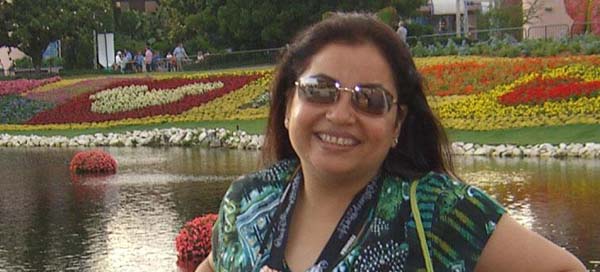




ANCIENT ARTWORK FINDS SEMBLANCE OF ESTEEM AT COCCO'S DEN IN LAHORE, PAKISTAN
BY RASHMI TALWAR
LAHORE (PAKISTAN)
Nothing surprises you more than finding a rich repository of Hindu, Buddhist, Jain and Christian ancient artifacts in the heart of Lahore, Pakistan. Broken or cracked is no issue.
If any individual has dared to salvage ancient "art" of minority communities in Pakistan and given them some semblance of esteem – it is the "Cocoo's den"—Art Studio cum Restaurant–Cafe --in Lahore.
For owner- painter Iqbal Hussain and restoring the 4-storeyed Haveli known as 'Holy Castle ' a evacuee property in the Heera Mandi –the red-light area of the city-- was a daunting task!
"I faced heavy odds from mullahs and extremist elements who questioned this amalgam of art of differing religious sensibilities. Sometimes the higher or lower levels of placement of artwork in comparison to the Muslim 'Kalma' evoked outrage. At others it was my collection of paintings of modern day 'tawaifs' in various modes of undress amidst these artworks have borne the ire of fundamentalists. But now with the round-the-clock security, things have been more settled," he added .
Queried over his paintings of flesh traders he answers without a hint of embarrassment " My mother -- 'Nawab Begum' was a 'tawaif and a' 'nautch' dancer in the court of maharaja of Patiala hailing from Dharampura from where we came to Lahore during partition".
About the extravagant collection that he has painstakingly chosen to decorate in nooks and corners, even on balustrade ledges! he says "I collected and bought works of art from local junk dealers -- temple jharokas/domes , statues of Hanuman lifting the Sanjivni , Buddhist busts , striking bells, flower platters , ancient diyas , life size statue of Mother Mary, Guardian and cupid angels and virtually turned this into a art studio. However financial -crunch pushed me into remodeling the studio-- into a restaurant and cafe where I displayed 'my' art now."
His art has been aptly described by Aryn Baker in 'Time' Magazine as "Hussain's searing portraits of teenage prostitutes, thickset madams to wizened harmonium players amidst ancient art ---- a mix of the "debased and the divine" .
Senior Superintendent of Police Special Branch, Lahore Ms Neelma Durrani admits that the 'strange mix' has brought its share of hardships to the place and owner. Owners of other shops around the restaurant also give credence to the fact that the place faced hullabaloo from those claiming to be the protectors of Islam on several occasions.
However Cooco's den is replete with a unique combination of ancient culture, gastronomical delights and a near perfect view. It is no surprise then that it has become the most favored spot for a Lahore visitor including many Indians and foreigners.
The indoors are intriguing in contrast to the dazzling outdoors, giving a feel of different time zone.
Tastefully, laid tables, glassware, antique chairs in almost all settings including indoors, patio, terrace, and rooftop.
A bell hung over a beatific statue of Virgin Mary on the main patio is used to ring in the delicious food orders from lower floors as a 'handi' strung on ropes is lowered and swiftly pulled from the rooftop to serve sizzling cuisine food on any floor .
'Rope- pulling'-- is an ancient method used to lift purchases like groceries, vegetables others to upper floors of the house practiced even now in many congested parts of Punjab in both India and Pakistan but especially in Amritsar and Lahore.
"I have kept alive this ancient mode of transportation," the owner lets out with a guffaw.
Warm marble tables heated with electric heaters underneath, under the glow of the lanterns with flavors of mint, strawberry and vanilla 'hookah' –called 'sheesha'--absolutely transforms as one breathes in the unique roof-top view of the breathtaking sight of 350-year old ancient minarets of Badshahi mosque—bathed in floodlight, underneath a chilly, clear, twinkling, dark sky.
The view adds to the exotic ambience of bells, marbled statues, frescoes of deities, flower platters, wood- framed mirrors, and sparkling glow of 'diyas' that casts a virtual spell.
"I respect all faiths. After the Babri Masjid went down in 1993 lots of shrines in Pakistan came under violence. I offered to take in any statue of any Hindu, Buddhist, Jain God or Goddess if it came on the market. So they came to me. I don't want any disrespect shown to them," says Hussain.
Interestingly, according to Hussain his 90-years old mother tells him that his father was a Hindu – a Pandit named 'Karamchand' –a singer of big, local fame. He even claims to have a picture of him









